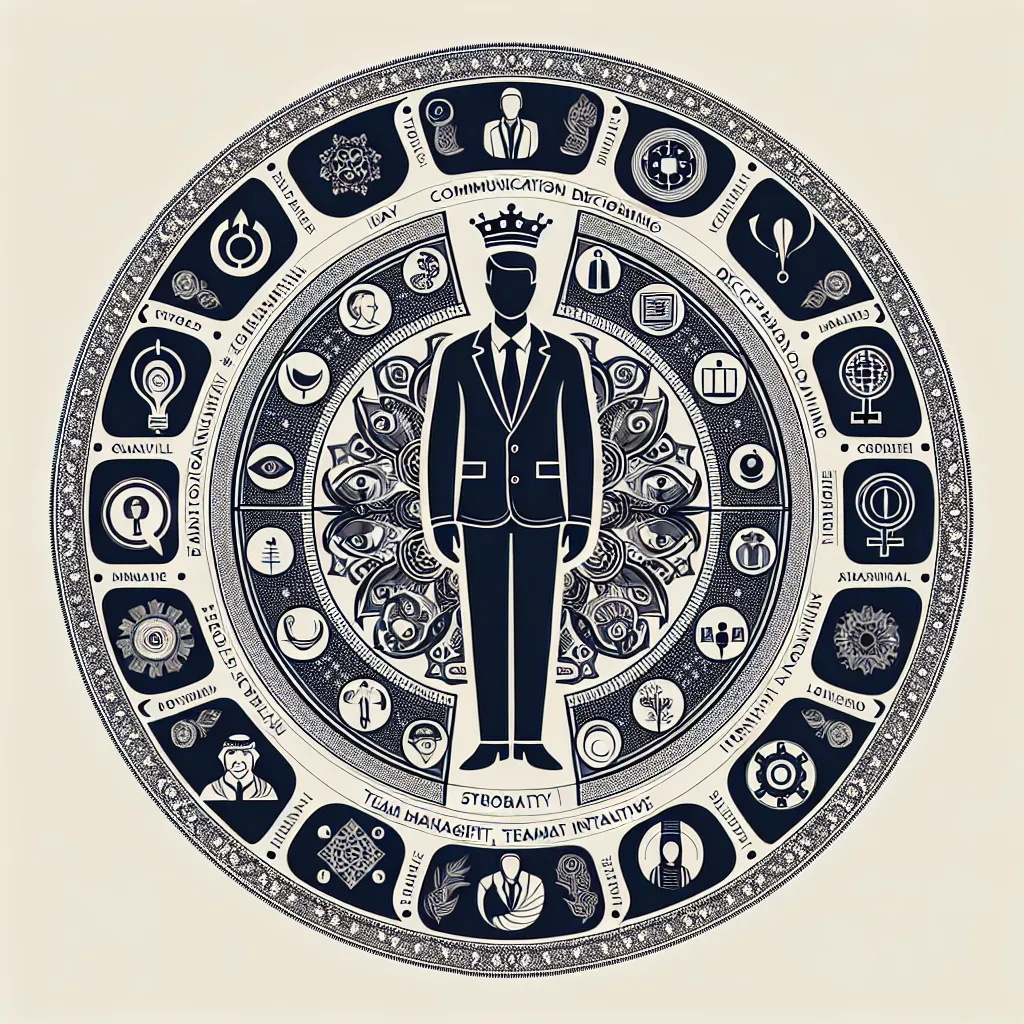Leadership experience is a crucial aspect that many employers look for in potential candidates. Being able to effectively communicate your leadership skills and experiences during an interview can significantly increase your chances of landing the job. This article will guide you through the process of answering questions about your leadership experience in English, providing valuable insights and practical tips to help you showcase your abilities confidently.
Understanding the Importance of Leadership Experience
Leadership experience is highly valued by employers across various industries. It demonstrates your ability to guide, motivate, and inspire others towards achieving common goals. When interviewers ask about your leadership experience, they are looking to assess your potential to take on responsibilities, manage teams, and contribute to the organization’s success.
 Leadership Interview
Leadership Interview
Key Aspects Employers Evaluate in Leadership Experience
When discussing your leadership experience, interviewers typically focus on several key aspects:
- Communication skills
- Decision-making abilities
- Problem-solving capabilities
- Team management
- Adaptability and flexibility
- Vision and goal-setting
- Conflict resolution
Understanding these aspects will help you prepare more comprehensive and impactful answers during your interview.
Effective Strategies for Answering Leadership Experience Questions
To answer questions about your leadership experience confidently and effectively, consider the following strategies:
1. Use the STAR Method
The STAR method (Situation, Task, Action, Result) is an excellent framework for structuring your responses:
- Situation: Describe the context or background of the leadership experience.
- Task: Explain the specific responsibility or challenge you faced.
- Action: Detail the steps you took to address the situation.
- Result: Highlight the positive outcomes of your actions.
Example:
“In my previous role as a project manager, I was tasked with leading a team of five members to complete a critical software development project (Situation). Our deadline was tight, and we faced several technical challenges (Task). I implemented daily stand-up meetings to improve communication and created a detailed project timeline to keep everyone on track (Action). As a result, we successfully delivered the project two days ahead of schedule, and the client was extremely satisfied with the outcome (Result).”
2. Highlight Specific Skills and Qualities
When discussing your leadership experience, focus on specific skills and qualities that demonstrate your effectiveness as a leader:
- Effective communication
- Delegation
- Motivation
- Strategic thinking
- Empathy
- Integrity
Example:
“One of my key strengths as a leader is effective communication. I believe in maintaining open and transparent communication channels with my team members. For instance, in my last project, I implemented a weekly feedback session where team members could share their concerns and suggestions. This approach significantly improved team morale and productivity.”
3. Provide Concrete Examples
Support your claims with concrete examples from your past experiences. This adds credibility to your answers and helps the interviewer visualize your leadership capabilities.
Example:
“When I led the marketing team at my previous company, we faced a challenge with declining engagement rates on our social media platforms. I initiated a brainstorming session with the team, where we developed a new content strategy focusing on user-generated content. This approach resulted in a 30% increase in engagement within three months.”
 Concrete Leadership Examples
Concrete Leadership Examples
4. Demonstrate Growth and Learning
Show how you’ve grown and learned from your leadership experiences. This demonstrates self-awareness and a commitment to continuous improvement.
Example:
“In my early days as a team leader, I struggled with delegating tasks effectively. I realized this was limiting our team’s productivity. To address this, I attended leadership workshops and sought mentorship from senior managers. Over time, I developed a more balanced approach to delegation, which significantly improved our team’s efficiency and allowed me to focus on strategic planning.”
5. Align Your Experience with the Job Requirements
Tailor your responses to align with the specific leadership qualities and experiences mentioned in the job description. This shows that you’ve done your research and understand what the company is looking for in a leader.
Example:
“I noticed that your job description emphasizes the need for a leader who can drive innovation. In my previous role, I implemented an ‘innovation hour’ every week, where team members could work on creative projects outside their regular responsibilities. This initiative led to the development of two new product features that are now among our best-selling offerings.”
Common Leadership Experience Questions and Sample Answers
Here are some frequently asked questions about leadership experience, along with sample answers:
-
Q: “Can you describe a time when you had to lead a team through a difficult situation?”
A: “Certainly. In my previous role as a project manager, our team faced a significant challenge when a key client suddenly changed their requirements midway through the project. I immediately called an emergency team meeting to assess the situation and brainstorm solutions. I delegated tasks based on each team member’s strengths and established a new timeline. We worked extended hours, and I made sure to recognize and appreciate everyone’s efforts. Despite the setback, we managed to deliver the project on time, and the client was impressed with our adaptability.” -
Q: “How do you motivate team members who are struggling with their tasks?”
A: “I believe in a personalized approach to motivation. First, I would have a one-on-one conversation with the team member to understand the root cause of their struggle. Based on this, I might offer additional training, pair them with a more experienced colleague for mentoring, or adjust their workload if necessary. I also make sure to recognize and celebrate small victories along the way. For example, in my last team, we had a ‘weekly win’ session where team members could share their achievements, no matter how small. This boosted morale and encouraged continuous improvement.” -
Q: “How do you handle conflicts within your team?”
A: “I approach conflict resolution with a focus on open communication and finding common ground. When a conflict arises, I first meet with the involved parties separately to understand their perspectives. Then, I bring them together for a mediated discussion. I encourage active listening and help them find a mutually beneficial solution. In one instance, two team members had different approaches to a project. By facilitating a discussion, we were able to combine elements from both approaches, which ultimately led to a more innovative solution.” -
Q: “Can you give an example of a time when you had to make a difficult decision as a leader?”
A: “In my role as a department head, I once had to decide whether to continue with a long-standing project that was consuming significant resources but not yielding the expected results. After a thorough analysis and consultation with key stakeholders, I made the difficult decision to discontinue the project. I communicated this decision transparently to the team, explaining the rationale and outlining a plan to reallocate resources to more promising initiatives. While it was a tough decision, it ultimately allowed us to focus on more impactful projects and improved our overall department performance.” -
Q: “How do you ensure clear communication within your team?”
A: “I believe in multi-channel communication to ensure clarity and accessibility. I use a combination of regular team meetings, one-on-one check-ins, and digital tools like project management software and instant messaging platforms. I also encourage an open-door policy where team members can approach me with questions or concerns at any time. Additionally, I always follow up important verbal communications with written summaries to avoid misunderstandings. This approach has significantly reduced errors and improved team cohesion in my previous leadership roles.”
 Effective Team Communication
Effective Team Communication
Common Mistakes to Avoid When Discussing Leadership Experience
When answering questions about your leadership experience, be mindful of these common pitfalls:
- Being too vague: Provide specific examples and quantifiable results whenever possible.
- Focusing only on successes: Showing how you’ve learned from challenges demonstrates growth and resilience.
- Neglecting to highlight soft skills: Leadership is not just about technical expertise but also about interpersonal skills.
- Overemphasis on individual achievements: Leadership is about guiding a team, so focus on collective successes.
- Failing to adapt to the company’s culture: Research the company’s values and leadership style, and align your examples accordingly.
Additional Follow-up Questions and Suggested Answers
-
Q: “How do you delegate tasks effectively?”
A: “I delegate tasks based on team members’ strengths and development goals. I clearly communicate expectations, provide necessary resources, and offer support while allowing autonomy. I also follow up regularly to ensure progress and provide feedback.” -
Q: “How do you handle underperforming team members?”
A: “I start with a private conversation to understand the root cause of underperformance. Then, I work with the individual to create an improvement plan, which might include additional training, mentoring, or adjusting responsibilities. I set clear expectations and milestones, providing regular feedback and support throughout the process.” -
Q: “Can you describe your leadership style?”
A: “My leadership style is primarily collaborative and adaptive. I believe in involving team members in decision-making processes while providing clear direction. I adjust my approach based on the team’s needs and the specific situation, balancing guidance with empowerment.” -
Q: “How do you foster innovation within your team?”
A: “I encourage innovation by creating a safe environment for idea-sharing. I implement regular brainstorming sessions, an ‘ideas box’ for anonymous suggestions, and allocate time for experimental projects. I also recognize and reward innovative thinking, even if the ideas don’t always succeed.” -
Q: “How do you ensure your team meets deadlines consistently?”
A: “I use a combination of clear goal-setting, regular progress tracking, and proactive problem-solving. I break large projects into manageable tasks with mini-deadlines, use project management tools for visibility, and hold brief daily check-ins to address any potential delays early on.” -
Q: “How do you handle feedback, both giving and receiving?”
A: “I view feedback as a crucial tool for growth. When giving feedback, I focus on being specific, constructive, and timely. I use the ‘sandwich’ method, starting and ending with positive points. When receiving feedback, I listen actively, ask clarifying questions, and use it as an opportunity for self-improvement.” -
Q: “How do you keep your team motivated during long-term projects?”
A: “For long-term projects, I break them down into smaller, achievable milestones. I celebrate these mini-victories to maintain momentum. I also rotate responsibilities to prevent burnout, regularly communicate the project’s importance and impact, and organize team-building activities to boost morale.”
Conclusion
Effectively communicating your leadership experience in English during an interview requires preparation, self-reflection, and practice. By understanding what employers are looking for, using structured response techniques like the STAR method, and providing concrete examples of your leadership skills, you can confidently showcase your abilities. Remember to tailor your responses to the specific job requirements and company culture, and always demonstrate your willingness to learn and grow as a leader.
Preparing thoughtful answers to common leadership questions will help you feel more confident during your interview. However, it’s equally important to be genuine and let your unique leadership style shine through. With these strategies and examples in mind, you’ll be well-equipped to impress your interviewer and demonstrate why you’re the ideal candidate for the leadership role you’re pursuing.
For more tips on acing your English interview, check out our articles on how to talk about your experience in English and how to answer questions about leadership in English.




